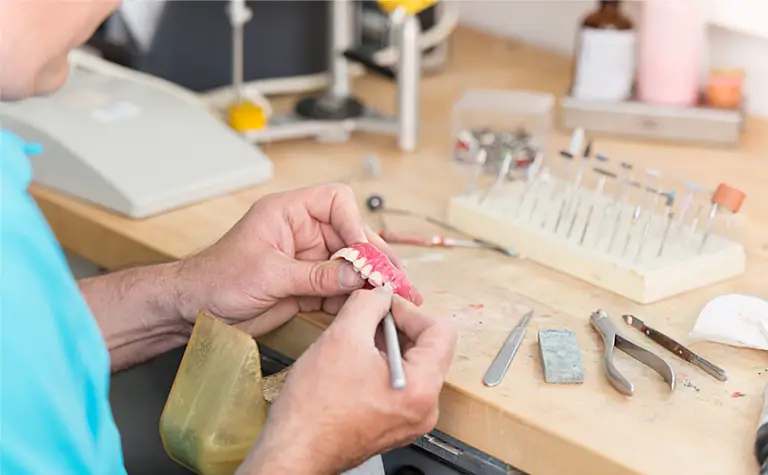Comprehensive Guide to Dentures and Their Types
Dentures are a crucial solution for many individuals facing tooth loss. They not only restore the functionality of the mouth but also significantly enhance the aesthetic appeal of one’s smile. This article delves into the different types of dentures available, their benefits, and what you can expect from the process of getting dentures.
What Are Dentures?
Dentures are removable replacements for missing teeth and surrounding tissues. They are custom-made to fit your mouth and can be taken out and put back in. While they may take some time to get used to, and they will never feel exactly like your natural teeth, today’s dentures are natural-looking and more comfortable than ever.
Types of Dentures
There are several types of dentures, each designed to address specific dental needs and preferences. Understanding the different options can help you make an informed decision about which type is best for you.

Complete Dentures
Complete dentures are used when all the teeth are missing. They can be further categorized into two types:
- Conventional Complete Dentures: These are made after the teeth have been removed and the gum tissue has begun to heal. They are ready for placement in about eight to twelve weeks after the teeth have been removed.
- Immediate Complete Dentures: These are made in advance and can be positioned as soon as the teeth are removed. While they offer the advantage of not having to be without teeth during the healing period, they may require more adjustments to fit properly during the healing process.
Partial Dentures
Partial dentures are used when some natural teeth remain. They consist of replacement teeth attached to a pink or gum-colored plastic base, which is sometimes connected by metal framework that holds the denture in place in the mouth. Partial dentures not only fill in the spaces created by missing teeth but also prevent other teeth from changing position.
Implant-Supported Dentures
Implant-supported dentures are a more stable and secure option compared to conventional dentures. They involve the placement of dental implants in the jawbone, which provide a solid foundation for the dentures. Implant-supported dentures can be used for both complete and partial dentures and offer enhanced stability, function, and comfort.
Overdentures
An overdenture is a removable denture that fits over a small number of remaining natural teeth or implants. The teeth or implants provide stability and support for the denture. Overdentures help preserve the bone and offer improved retention compared to conventional dentures.
Benefits of Dentures
Dentures provide numerous benefits beyond just the restoration of appearance. Here are some key advantages:
- Improved Oral Function: Dentures enable you to eat and speak more effectively than you could without teeth.
- Enhanced Appearance: They help fill out the appearance of your face and profile, giving you a more youthful look.
- Boosted Confidence: A complete and beautiful smile can significantly enhance your self-esteem and confidence.
- Preventing Dental Problems: Dentures help maintain the alignment of your remaining teeth and prevent them from shifting.
- Bone Preservation: Especially in the case of implant-supported dentures, they help in maintaining the jawbone’s integrity.
The Process of Getting Dentures
The process of getting dentures typically involves several steps:
- Consultation: Your dentist will evaluate your oral health, discuss your needs and preferences, and determine the most suitable type of denture for you.
- Impressions and Measurements: Accurate impressions and measurements of your mouth will be taken to create dentures that fit perfectly.
- Trial Fitting: A trial denture will be made and fitted to ensure comfort and proper alignment.
- Final Denture Placement: Once the trial denture is approved, the final dentures will be made and placed in your mouth.
- Adjustments: Initial adjustments may be needed to ensure the best fit and comfort.
Caring for Your Dentures
Proper care of your dentures is essential to keep them in good condition and to maintain your oral health. Here are some tips:
- Daily Cleaning: Clean your dentures daily using a soft toothbrush and mild denture cleanser.
- Handle with Care: Be careful when handling your dentures to avoid dropping and breaking them.
- Regular Dental Visits: Regular check-ups with your dentist are important to ensure your dentures fit well and to check for any issues.
- Proper Storage: When not in use, keep your dentures in water or a denture-soaking solution to prevent them from drying out and losing their shape.
Understanding the various types of dentures and their benefits can help you make an informed decision about your dental health. Whether you need complete, partial, implant-supported, or overdentures, there is a solution that can restore your smile and improve your quality of life. Consult with your dentist to find the best option for you and enjoy the many benefits that dentures can offer.
